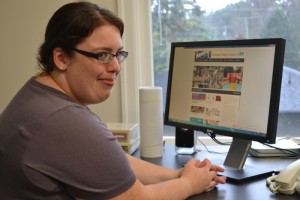A two-percent increase to British Columbia’s minimum wage will go into effect in September, but student groups are complaining that the 20-cent-per-hour hike isn’t nearly enough to keep students and families in BC above the poverty line.
“Students are looking for a meaningful increase to minimum wage. It doesn’t make sense for anyone, whether they are a student or a single mom or anyone else in our society, no one should make poverty wages despite the fact that they are working full time,” says Zachary Crispin, chair of the Canadian Federation of Students-BC (CFS-BC). “It’s a very slight increase that’s being proposed right now, and it’s insulting to all the people who are scraping by, trying to feed their kids and scrape by on minimum wage, and they’re just not able to do that.”

The proposed 20-cent increase is the first in three years. Currently, the minimum wage is $10.25 per hour, and it has been frozen there since 2012. The BC Federation of Labour and student groups are currently campaigning to have the minimum wage raised to $15.
“We’re very much in support of the BC Federation of Labour’s Fight for 15 campaign because this would be much more adequate to address the poverty that BC residents currently face,” says Camosun College Student Society (CCSS) external executive Rachael Grant. “The minimum wage at its current level does not address the needs that students have, with the price of living in general being so high. This is failing BC families and it’s failing BC students.”
BC Jobs Minister Shirley Bond agrees that families in the province need well-paying, “family-supporting” jobs. She points out that BC’s average hourly wage is just under $25 and the hourly youth wage is just shy of $15.
“Both of these numbers are trending in the right direction, a sign that our plan to grow the economy is working,” says Bond. “We have increased the minimum wage and are committed to reasonable and predictable yearly increases linked to BC’s Consumer Price Index.”
Meanwhile, the CFS-BC and CCSS are planning to keep campaigning for a larger increase to $15, with actions and rallies on the 15th of each month.
“If you look at the public opinion polling from the BC Federation of Labour it’s very clear that British Columbians are looking for a meaningful increase to minimum wage,” says Crispin. “And whether the provincial government is going to listen to British Columbians on this issue, I can’t say. But I’m confident that working with other student and labour organizations and community groups, that we are going to be successful in putting immense pressure on the government to put the hardest working British Columbians at a rate above the poverty line.”
